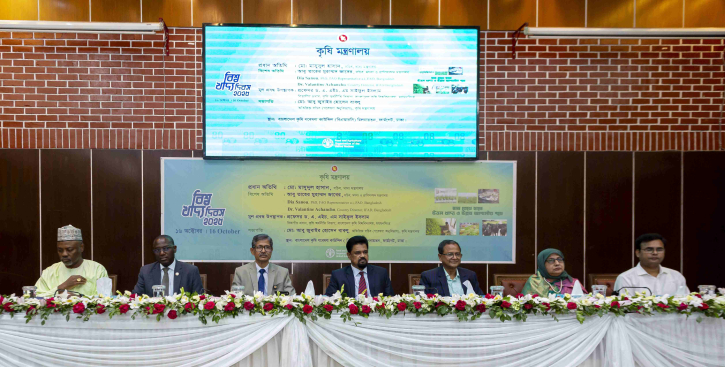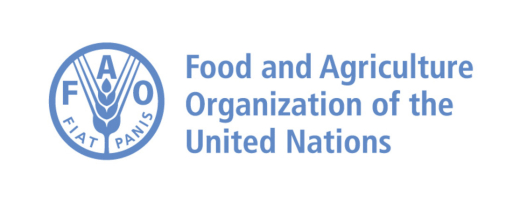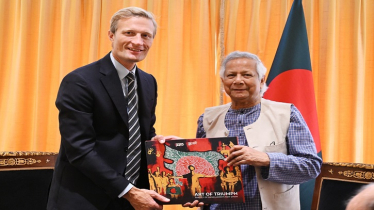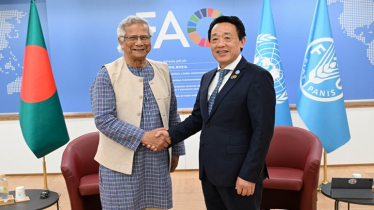
The Ministry of Agriculture (MoA), in collaboration with the Food and Agriculture Organization of the United Nations (FAO) and key development partners, organized a national seminar today to mark World Food Day 2025 under the global theme “Hand in Hand for Better Food and a Better Future.” The theme underscores the importance of partnerships and cooperation in creating a hunger-free world.
The event brought together government officials, UN agencies, development partners, farmers’ representatives, researchers, youth, and private sector stakeholders to discuss the collective actions required to transform agrifood systems in Bangladesh.
Held at the Bangladesh Agricultural Research Council (BARC) Auditorium, the seminar emphasized the need for joint efforts to ensure access to nutritious, safe, and sustainable food for all while addressing challenges posed by climate change, resource limitations, and the economic constraints faced by smallholder farmers.
Md. Masudul Hasan, Secretary and Hon’ble Adviser at the Ministry of Food, Bangladesh, attended as Chief Guest. He stated, “The government has taken appropriate initiatives to ensure food and nutrition supply for the poor by formulating and implementing the Outlook 2050 Action Plan. But food security and nutrition cannot be achieved through the government’s sole efforts—it requires a united effort from everyone—farmers, scientists, entrepreneurs, policymakers, and consumers, all of whom must work hand in hand.”
Dia Sanou, FAO Representative a.i. in Bangladesh, said, “In Bangladesh, around 12% of the population is undernourished, and over 1.6 million children are at risk of acute malnutrition in 2025. These numbers remind us that while progress is real, the journey to zero hunger is far from over and demands stronger, faster action. This year’s World Food Day focuses on the need for collective action to produce more and better food and build a peaceful future in harmony with the planet, bringing together farmers, consumers, policymakers, and partners.”
Valantine Achancho, Country Director of the International Fund for Agricultural Development (IFAD), highlighted the role of innovation and investment in achieving sustainable food systems. “IFAD’s programmes reflect its comparative advantage. We work at the intersection of investment, innovation, and inclusion—bringing finance where it is most needed, knowledge from global experience, and partnerships that connect smallholders to markets and technologies,” he stated.
Abu Taher Muhammad Jaber, Secretary of the Ministry of Fisheries and Livestock, Bangladesh, emphasized the need to address food loss and waste management. “According to the Food Waste Index Report 2024, Bangladesh’s food waste trend in 2022 was higher than India, Russia, the United Kingdom, and the United States. We need urgent action involving all relevant partners to prevent this and ensure a food-secure Bangladesh,” he said.
The event was chaired by Md. Abu Zubair Hossain Bablu, Additional Secretary, Research Wing, Ministry of Agriculture. Prof. Dr. A.H.M. Saiful Islam, Head of the Department of Agricultural Economics, Bangladesh Agricultural University, Mymensingh, presented the keynote paper focusing on synergies among agricultural stakeholders for better food and a better future.
The winners of the World Food Day Poster Contest, organized by FAO, were also awarded during the event.
World Food Day, observed every year on October 16, marks the founding of the Food and Agriculture Organization of the United Nations (FAO) in 1945. It serves as a global call to raise awareness about hunger, malnutrition, and the urgent need to build sustainable and inclusive agrifood systems. Collective action across 150 countries in up to 50 languages makes World Food Day one of the most celebrated days on the UN calendar, promoting a global commitment to achieving food security for all while addressing the interconnected challenges of hunger, poverty, inequality, and climate change.





